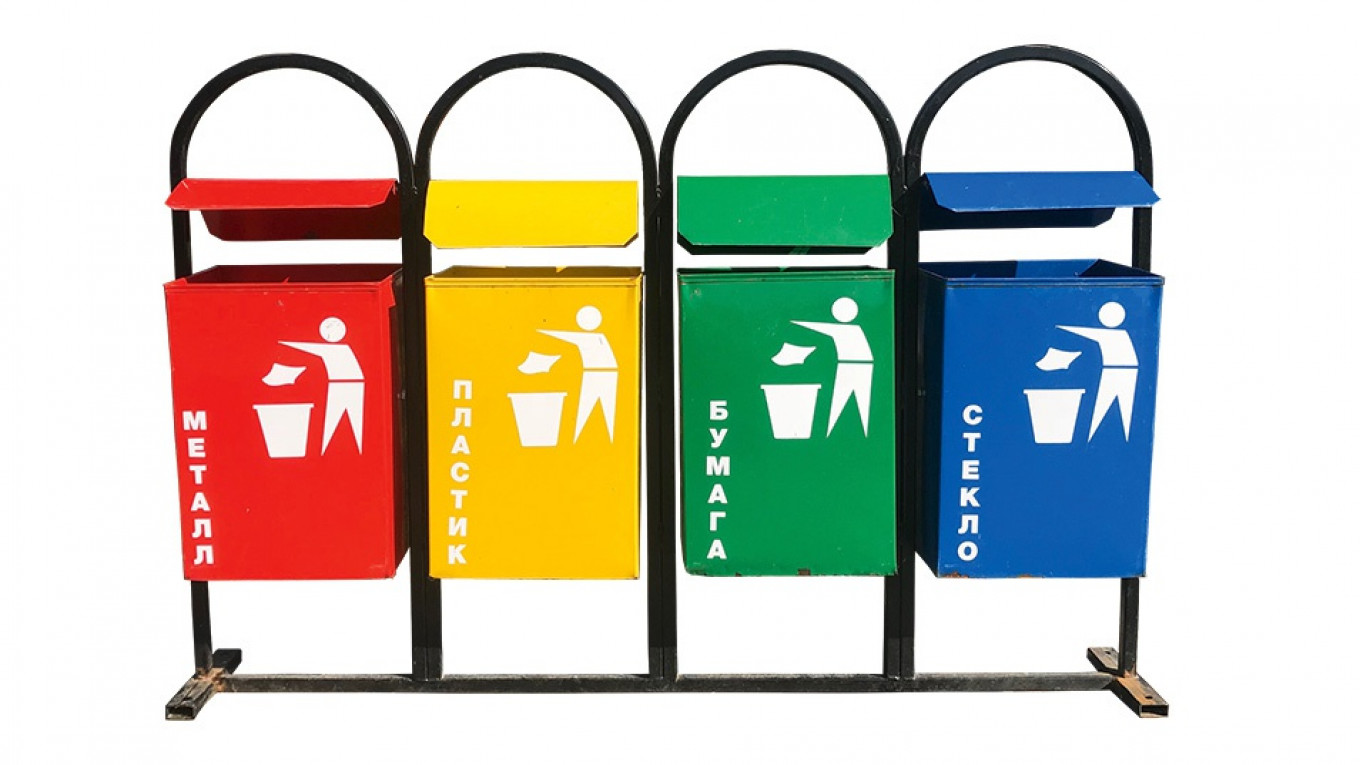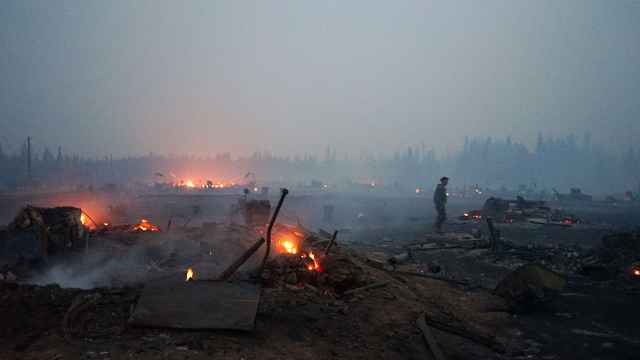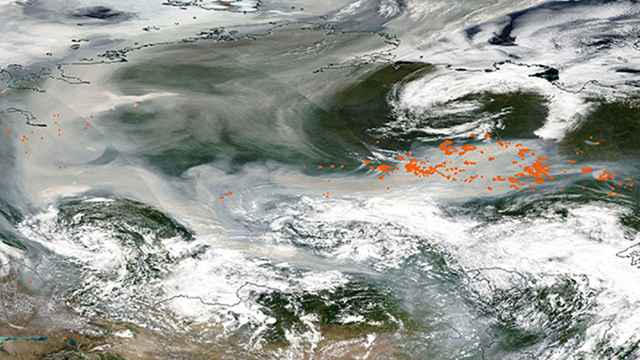Tatiana Chulyuskina likes to think of herself as an efficient housekeeper.
For the past two years, the 32-year old graphic designer has lived by the motto, “There’s nothing that cannot be reused.” She brings her own cup with her to coffeeshops and wraps her food in re-usable packaging. Once a month, she throws out a single bag of garbage.
In most Western countries, Chulyuskina would be just another eco-conscious millennial. But in Russia, her tips on how to lead a “zero waste” lifestyle are something of a novelty to her 27,000 Instagram followers.
“The thought of my children living in a world full of waste, full of plastic bags that I only used for 10 minutes struck me,” Chulyuskina says of the moment she decided to radically change her lifestyle.
Recycling has yet to make its mark in Russia. Waste is rarely separated and recycling bins are, at best, difficult to find, even in the glitzy capital. Garbage is still chucked down waste chutes in Soviet-era apartment buildings or left in large dumpsters in courtyards.
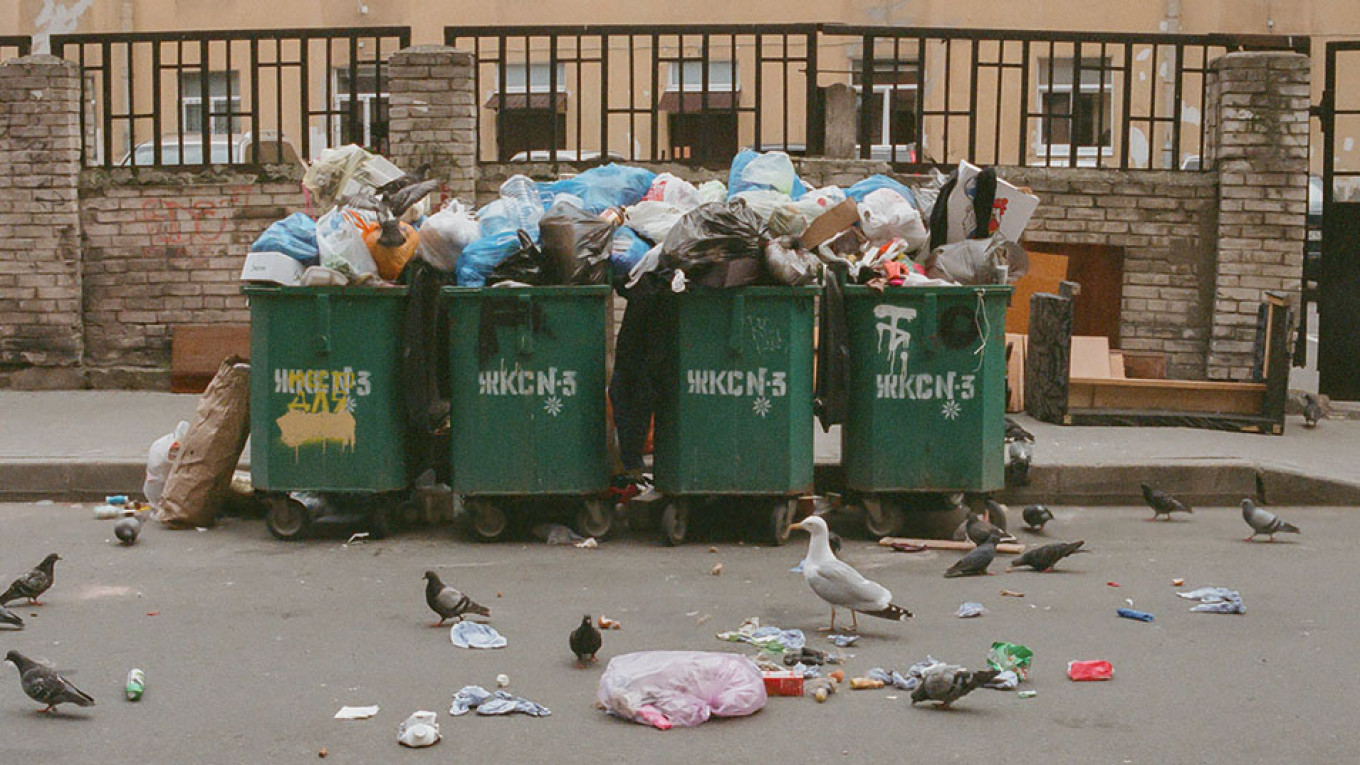
Slowly, however, the question of responsible waste disposal is being taken up more widely as Russians become increasingly attuned to the consequences of overflowing landfills.
The year 2018 began with a string of protests in Volokolamsk, a town some 100 kilometers outside Moscow, when dozens of residents were hospitalized following reports of noxious gases emanating from a landfill nearby. Other protests have followed in places as far apart as in western Siberia’s Chelyabinsk and ongoing protests in Arkhangelsk in the north.
In a recent Greenpeace survey, half of respondents blamed plastic bags for the trash crisis. Indeed, more than 26 billion plastic bags are handed out every year in shops across Russia, says Alexander Ivannikov of Greenpeace’s “Zero Waste” project.
“The saddest part is that on average each bag is used for just 12 minutes, after which it becomes waste,” he told The Moscow Times. “To solve the crisis, we need to solve the problem with plastic waste first.”
But that is a tall order, and one that the Russian leadership appears to be ignoring. When ordinary Russians have complained to President Vladimir Putin about overflowing landfills during his annual televized call-ins, he has responded with symbolic gestures, by ordering specific landfills to be closed or moved elsewhere. And when the head of Greenpeacе asked Putin several years ago to ban plastic bags altogether, the president said the move would lead to job losses.
Meanwhile, budget shops, high-end supermarkets and everything in-between hand out plastic bags for even the smallest purchases, which is widely regarded as a hallmark of good service.
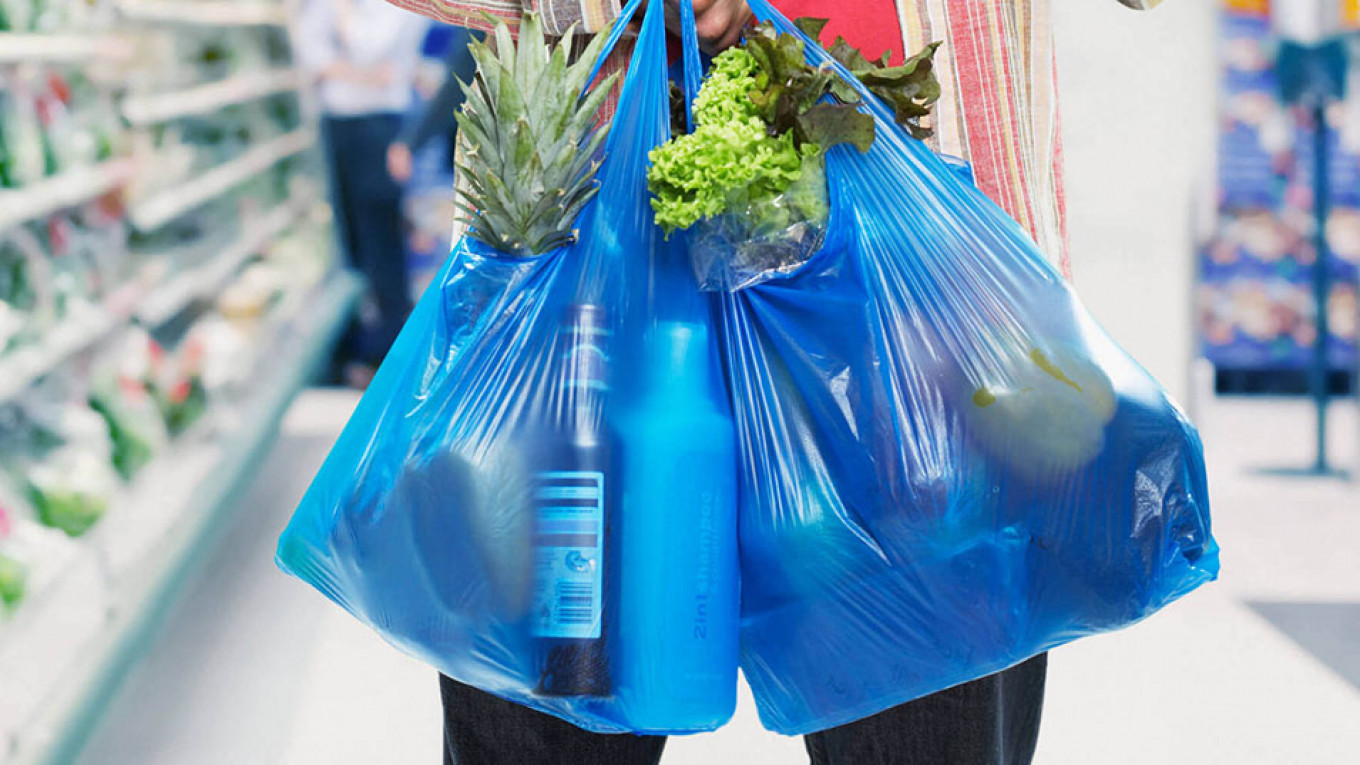
Many Russians remember a time when bags were coveted souvenirs from the West, says Boris Akimov, the founder of the organic grocery cooperative LavkaLavka. “In the Soviet Union, they were considered a rarity.”
With the advent of capitalism in the ’90s, plastic became more common, but many still stockpiled bags at home — just in case. “Encouraging Russians to start hoarding plastic for reuse can feel like asking them to return to the past,” Akimov says.
That isn’t quite the forward-looking message activists are hoping to promote.
Skeptical consumers
Last year, Greenpeace invited Russia’s top 20 retailers to join their “Ban the Bag” campaign to reduce the use of plastic bags. Only four major names— Azbuka Vkusa, Vkusvill, Ashan and a Russian branch of Spar — signed on. And in at least one case it was shoppers themselves who demanded change.
“Customers were starting to comment on our plastic waste on social media,” says Andrei Golubkov, a spokesperson for Azbuka Vkusa, a high-end grocery chain. “They were a minority of our consumers, but they were the most active.”
Heeding their call, Azbuka Vkusa began charging 5 rubles ($0.7 cents) per bag in October, a move which the company claims has reduced the number of plastic bags leaving their stores threefold.
LavkaLavka had already replaced plastic with paper when in November it introduced a discount scheme for customers who purchase food in reusable containers. The aim, says Akimov, is to completely banish plastic from its shops by 2021.
But the transition has not been easy, even for LavkaLavka’s exclusive and loyal customer base. “When we started charging for paper bags as well, the reactions were mixed. Some were very negative,” Akimov says. “We need to make sure our customers know that our goal is not just to make more money.”
Vkusvill, another grocery chain, has also faced backlash for adding a surcharge, spokesperson Marina Purim told The Moscow Times. But “there was no other way,” she says. “The most effective way to reduce plastic waste is to make people pay for it.”
A next step would be to introduce alternative biodegradable packaging, in the footsteps of some countries including, recently, Italy. But, as Golubkov points out, “that requires there to be infrastructure to process biodegradable waste. And, in Russia, that doesn’t exist.”
Eco-entrepreneurship
Meanwhile, “zero waste” stores are springing up across the country, including in St. Petersburg, Petrozavodsk and Perm.
In Krasnogorsk, a town outside Moscow, Larisa Petrakova sells groceries from large tubs which customers transfer to their own containers and then pay for by weight. “I’m not an activist, I’m just your average person who wants to be conscious about waste,” Petrakova, 37, says. “When you reduce your waste, there’s less to recycle.”
Environmentally conscious Russians are also coming together and scaling up their activities, using the internet as a platform.
Dmitry Zakarlyukin first launched his “eco taxi” initiative in Chelyabinsk in 2013. He offers a recycling pick-up service, which customers can order online for 500 rubles ($7). In the years since it launched, the service has expanded to St. Petersburg and Moscow and there are plans to move into other towns.
The lack of adequate infrastructure in Moscow means trash is either burnt in cities nearby or it goes to neighboring regions,” he says. “Given our Russian reality in which people aren’t given a voice or a role to play, the waste problem is one case where we can actually do something ourselves.”
First steps
With small businesses leading the way, some local officials are cautiously getting on board, too. Last summer, Leningrad region’s culture committee banned the use of plastic at local cultural events.
"Since we hold more than 100 festivals and have five theaters and around 30 museums, we decided to try to set an example by reducing plastic waste,” Yevgeny Chaikovsky, the head of the committee, told The Moscow Times. “It’s important to educate a new generation.”
Akimov of LavkaLavka also has his eyes on the future. “In the early 90s, drinking water from a plastic bottle instead of drinking tap water like we used to in Soviet times seemed unusual, but now we can’t imagine living without it.
“Every practice needs time to get used to.”
Want to recycle? Here's some useful information:
Where to shop
— Zero Waste Shop, “Box City” shopping mall, 2nd floor, Metro Myakinino
Where to recycle
— Greenpeace has created an interactive map of recycling spots in Moscow and several other Russian cities, recyclemap.ru
— Many Azbuka Vkusa and Vkusvill branches also have separate recycling bins.
Join the movement
The “Razdelny Sbor” movement unites individuals and local groups who are interested in recycling.
Ecotaxi (in Russian)
A version of this article appeared in our special "Russia in 2019" print issue. For more in the series, click here.
A Message from The Moscow Times:
Dear readers,
We are facing unprecedented challenges. Russia's Prosecutor General's Office has designated The Moscow Times as an "undesirable" organization, criminalizing our work and putting our staff at risk of prosecution. This follows our earlier unjust labeling as a "foreign agent."
These actions are direct attempts to silence independent journalism in Russia. The authorities claim our work "discredits the decisions of the Russian leadership." We see things differently: we strive to provide accurate, unbiased reporting on Russia.
We, the journalists of The Moscow Times, refuse to be silenced. But to continue our work, we need your help.
Your support, no matter how small, makes a world of difference. If you can, please support us monthly starting from just $2. It's quick to set up, and every contribution makes a significant impact.
By supporting The Moscow Times, you're defending open, independent journalism in the face of repression. Thank you for standing with us.
Remind me later.


